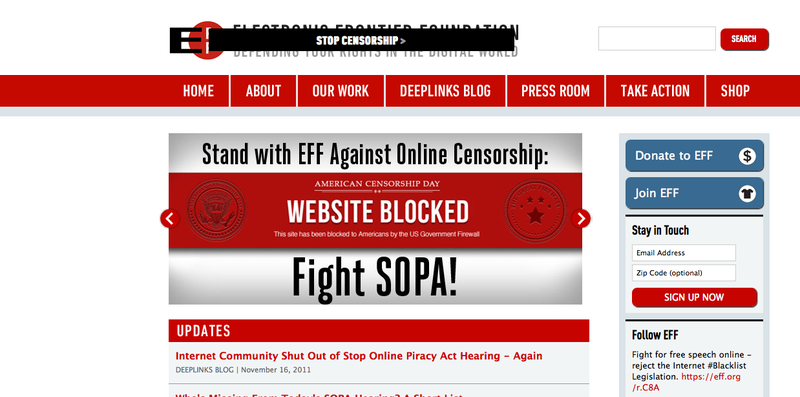Stop Online Piracy Act (SOPA) and Internet Censorship Bill, Tech Word Whizz

The Stop Online Piracy Act (SOPA), also known as E-PARASITE (Enforcing and Protecting American Rights Against Sites Intent on Theft and Exploitation) commonly being called "Internet Censorship Bill" was introduced in the United States House of Representatives on October 26, 2011 by Representative Lamar Smith. The aim of the bill is to help U.S. law enforcement and copyright holders fight online transmission of restricted intellectual property. Introduced by the House Judiciary Committee as building on similar legislation, this bill modernizes United States criminal and civil statutes to meet new IP enforcement challenges.
What is The Stop Online Piracy Acte bill (SOPA)?
The Stop Online Piracy Acte bill (SOPA) being labeled as Internet Censorship Bill, would allow the U.S. Department of Justice and copyright holders to seek court orders requiring online advertising networks, payment processors and other organizations to stop payments to websites and Web-based services accused of copyright infringement.Supporters of SOPA argue that U.S. law enforcement officials need new tools to fight websites, particularly foreign sites, that sell infringing products, including music, movies, clothing and medicine. Some infringing products are dangerous; others cost U.S. companies billions of dollars a year, supporters say.
Opponents of the bill argue it would empower litigious copyright holders to seek court orders targeting many legitimate websites, including sites with user-generated content such as Twitter and YouTube. The legislation would overturn the notice-and-takedown process in the Digital Millennium Copyright Act, and would slow U.S. technology innovation, with new Web-based services likely targeted by copyright holders, critics say.
SOPA would lead to censorship of legitimate websites and protected free speech on sites that may contain some infringing content, critics say. The bill is inconsistent with the U.S. Department of State's push for Internet freedom worldwide, they say.
Tech World Protests Against Stop Online Piracy Acte bill (SOPA)
The House Judiciary Committee held a hearing on the proposed Stop Online Piracy Act (or SOPA) which, depending on who you ask, is either a means to stop piracy and copyright infringement on so-called "rogue" websites, or the most serious threat of internet censorship that we've seen in some time. In the latter camp are some of the biggest internet companies around, including Google, Facebook, Twitter, Yahoo, eBay, LinkedIn, Mozilla, Zynga and AOL, who today made their stance clear by taking out a full-page ad in The New York Times.On November 16, Tumblr, Mozilla, Reddit, Techdirt and the Center for Democracy and Technology were among many other Internet companies that protested the Stop Online Piracy Act by participating in a so-called "American Censorship Day". They displayed black banners over their site logos with the words "STOP CENSORSHIP".
Google Inc warned U.S. lawmakers and policy counsel Katherine Oyama on Wednesday that proposed legislation to crack down on foreign websites selling pirated U.S. movies, music or other counterfeit goods goes too far and could depress investment. Expert all over the Internet and Technology world are perceiving SOPA as negative legislation terming it as Internet Censorship Bill. As David Sohn, senior policy counsel at the Center for Democracy and Technology said:
This is a bill that would eviscerate the predictable legal environment created by the DMCA, subjecting online innovators to a new era of uncertainty and risk. It would force pervasive scrutiny and surveillance of Internet users' online activities. It would chill the growth of social media and conscript every online platform into a new role as content police.










No comments:
Comments which are abusive, offensive, contain profanity, or spam links will be discarded as per our Comments Policy.